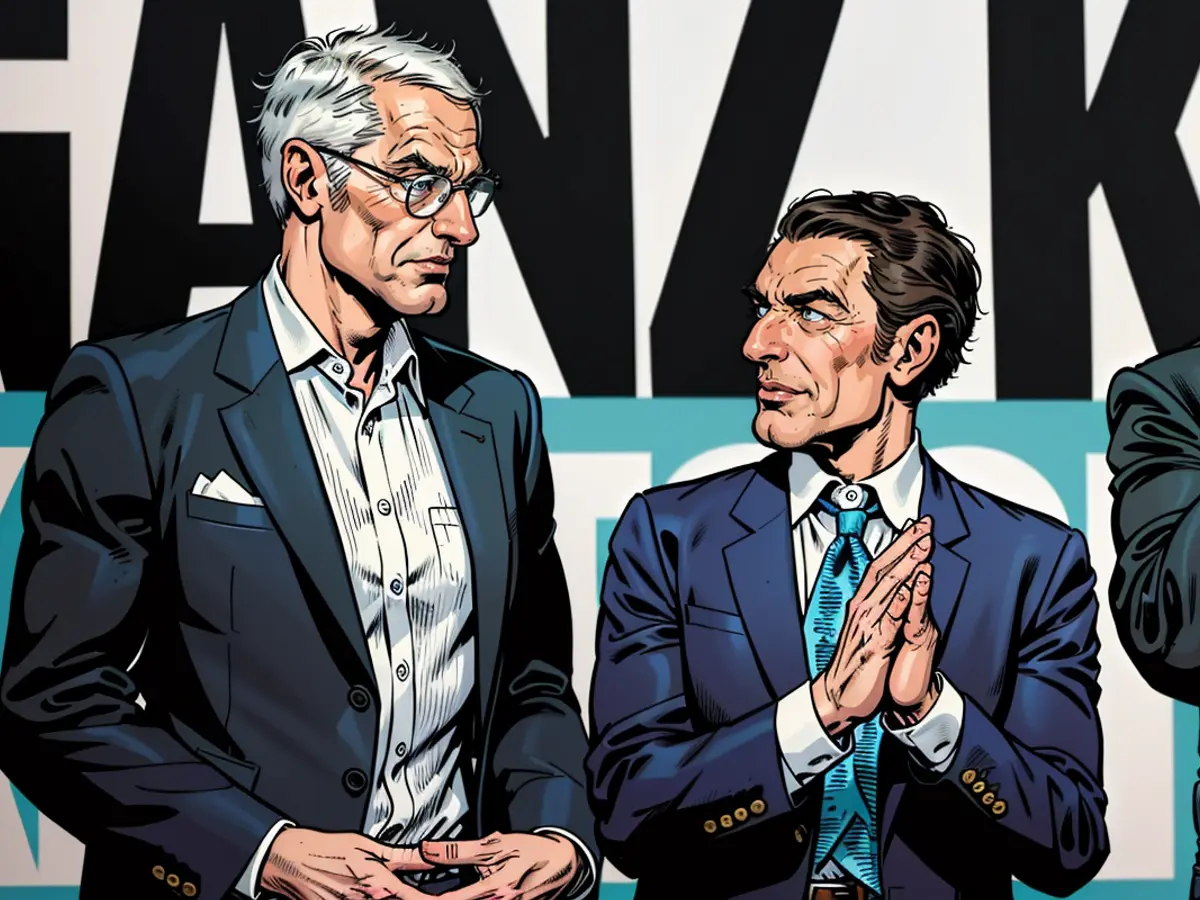- Soder's concluding response in the K-inquiry
Markus Söder has no public engagements scheduled for September 1st, not due to a desire for a leisurely Sunday, considering he's fresh from his vacation and sporting a trendy beard. The day of state elections in Thuringia and Saxony holds significant importance for Söder and his political future. The election results and the Union's performance in these two eastern German states will decide if Söder remains a contender for the Federal Chancellorship or if he spends the rest of his political journey in Bavaria. A verdict is expected this fall. Söder has expressly denied any future as a federal minister in Berlin like his predecessor, Horst Seehofer.
Söder actively contributes to the election campaigns in the neighboring federal states of Bavaria. On Monday, he joined CDU leader Friedrich Merz and Saxony's Minister-President Michael Kretschmer (also CDU) in Dresden, and by Friday, he is expected to appear in Suhl alongside CDU's top candidate, Mario Voigt, to conclude the Thuringian election campaign. In Saxony, Söder received a warm welcome from the Union supporters.
In terms of content, Söder has already mapped out his endgame in the 'C-question', or who will be the chancellor candidate, in the ARD summer interview. There, he made it crystal clear, not just for external reasons but also for CDU leader and rival candidate Friedrich Merz's ears, that if Merz entertains the idea of a coalition with the Greens as a preferred option in the 'C-question', it's a non-starter with the CSU and Söder. Secondly, in Thuringia, if one aims to keep the AfD, the right-wing extremist Björn Höcke, at bay, one might have to consider an alliance with the Left – a taboo for the CDU.
The question is, why is Söder taking a firm stance on the Greens?
Söder's firm position on the Greens, effectively stripping decision-making powers from the larger sister party CDU, has raised eyebrows. Why is he doing this? Why is he needlessly limiting the Union's maneuvering room in the case of a 2025 election victory, especially since he previously praised the Greens as an engaging social force? According to current polls, the SPD would be the sole mathematically feasible coalition partner in this scenario. Does Söder intend to rob governance satisfaction from his internal rival Merz?
Political scientist Ursula Münch from the Academy for Political Education in Tutzing maintains this is not the case. She views Söder's move as a defensive strategy against the AfD and other populists, principally in his own federal state. If the CSU didn't publicly distantiate itself from the Greens, the AfD, apart from Hubert Aiwanger with his Free Voters, would be the only alternative to vent frustration at the Greens, now disliked in large parts of society due to unpopular governance actions.
"Especially in rural areas, the CSU benefits from its criticism of the Greens," says Münch. Söder is well aware of the polarizing impact of this on the public. "You're either for or against them," Münch explains. Söder cannot afford ambivalence on this issue, even within his own base. In contrast, the CDU lacks this clarity due to state-level coalitions, such as in North Rhine-Westphalia.
Those tuning in carefully to the CSU presently hear a slightly diverse but not contradictory explanation. Yes, Söder is indeed narrowing the pool of potential coalition partners by categorically ruling out the Greens, Left, Alliance 90/The Greens, and especially the AfD as options for the Union at the federal level. However, this also opens up the opportunity to siphon votes away from the AfD. "Do you want more votes or more options?" is the straightforward question.
Söder wants more votes. He's already gaining them in Saxony. The applause for the man from Bavaria is louder than that for Friedrich Merz, even Kretschmer can't match the warm welcome. Söder is fully conscious of his popularity advantage over the eleven-year-older rival, as evidenced in national polls. He is also aware of Merz's clear favorite role, leading the larger of the two sister parties.
Above all, Söder is aware that he doesn't want a repeat of 2021: a bitter internal union personnel debate likely contributing to the election defeat. "We won't mess this up," says Söder about the common aim of toppling the traffic light coalition.
However, it's also clear: In the event of a potentially challenging outcome for the Union in Thuringia and/or Saxony, Merz cannot make any mistakes - his predecessor as party chairman, Annegret Kramp-Karrenbauer, would likely corroborate this perspective. All signals from Söder on the question of the chairmanship suggest the same thing: He is personally ready and equipped with content.
Despite his denial of becoming a federal minister in Berlin, Markus Söder actively participates in the election campaign of neighboring states, such as joining CDU leader Friedrich Merz and Saxony's Minister-President Michael Kretschmer in Dresden for a campaign event. As the election results in Thuringia and Saxony will significantly impact Söder's political future and his chances for the Federal Chancellorship, it is crucial for him to contribute to these election campaigns.








